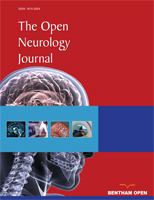Do Cannabinoids Confer Neuroprotection Against Epilepsy? An Overview.
“Cannabinoid-based medications provide not only relief for specific symptoms, but also arrest or delay of disease progression in patients with pain, multiple sclerosis, and other conditions. Although they also seem to hold potential as anticonvulsant agents, evidence of their efficacy in epilepsy is supported by several evidences. The data reviewed herein lend support to the notion that the endocannabinoid signalling system plays a key modulation role in the activities subserved by the hippocampus, which is directly or indirectly affected in epilepsy patients. The notion is supported by a variety of anatomical, electrophysiological, biochemical and pharmacological findings. These data suggest the need for developing novel treatments using compounds that selectively target individual elements of the endocannabinoid signalling system.” https://www.ncbi.nlm.nih.gov/pubmed/29290836
“The data reviewed herein demonstrate that cannabinoids provide neuroprotection against brain excitability. They seem to induce at least partial restoration of neurotransmitter dysfunction, inducing an anticonvulsant effect that may be the biological substrate of the complex neurochemical effects reported in experimental and clinical studies. A large body of data suggests that cannabinoids can be harnessed as antiepileptic agents. Finally, among patients with the Dravet syndrome, cannabidiol resulted in a greater reduction in convulsive-seizure frequency than placebo and was associated with higher rates of adverse events and it might reduce seizure frequency and might have an adequate safety profile in children and young adults with highly treatment-resistant epilepsy.”
]]>

